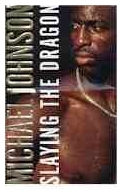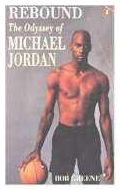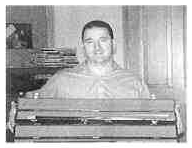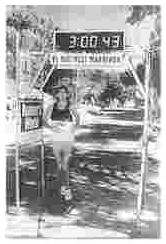The rewards include a healthy and fit body, development of teamwork and leadership skills, and even great wealth at the highest professional level. What is most fascinating is that success largely depends on how you apply your mind!
The CALM Research Centre assists people who want to improve their sporting ability by teaching them skills which assist in both the mental and emotional preparation for sport. These techniques are similar to those taught by the Australian Institute of Sport to all our elite athletes.
What Does The Seminar Teach?
The Life Skills Seminar is a practical and experiential workshop. Seminar participants truly experience the power of the mind for themselves and can prove it too! They learn and practise the following:
- The ability to relax and release stress any time and place.
- A complete scientific explanation of how the mind works.
- Methods for achieving focused concentration.
- How to utilise the laws and language of the subconscious mind.
- Making positive self talk really work for you.
- Methods for effective goal setting.
- Skills for powerfully imprinting goals into the subconscious mind, including visualisation.
- Methods for controlling physical pain.
- Proof that you are able to perform these skills through the use of Biofeedback equipment.
How Important Are These Skills For High Performance?
Top athletes from all over the world use them in their training. Sports psychologists are employed to ensure that training places as much emphasis on the use of mind techniques as it does on the physical aspect. Just read the following words from two of the world's highest performing sportsmen who place great emphasis on these skills and how much they contribute to their success.
 In 1996 Michael Johnson created sporting history in Atlanta by being the first athlete ever to win Olympic gold medals and hold the world record for both the 200m and 400m sprints. In his autobiography Slaying the Dragon he discusses some of the methods he used to accomplish this remarkable feat.
In 1996 Michael Johnson created sporting history in Atlanta by being the first athlete ever to win Olympic gold medals and hold the world record for both the 200m and 400m sprints. In his autobiography Slaying the Dragon he discusses some of the methods he used to accomplish this remarkable feat.
He talks about his use of visualisation and goal setting:
I try to control those parts of my life that can be controlled, to plan everything that I want to happen down to the most insignificant detail. I traffic in a world in which fractions of a second separate success and failure, so I'd visualised the 1996 Olympics down to the millisecond. I'd crafted a decade of dreams into ambitions, refined ambitions into goals and finally hammered goals into plans.
He also discusses the essential mastery of the internal dialogue between the conscious and subconscious through self-discipline:
So what is self discipline? It is a decision you must make that you aren't going to expect the least from yourself anymore, that you are going to commit to working harder practising your skills. It is mastering the ongoing dialogue within yourself. We all carry on a constant conversation within our own minds, encouraging sometimes … discouraging other times… Often we try to fool ourselves into doing things or we threaten ourselves, or bully ourselves … we are like bad parents with bad kids in a crowded mall.
Self discipline is the art of controlling that conversation, weeding out the counterproductive suggestions, asking and answering all the internal questions and doubts before you begin and then calmly jumping off that high diving board, doing the 50th push up, taking a 1 hour lunch, turning down that piece of pecan pie.
 Michael Jordan, in the biography Rebound by Bob Greene, talks about his experiences in basketball and his decision to learn a new sport, baseball. He describes the degree of focused concentration and relaxation he experiences while playing NBA basketball:
Michael Jordan, in the biography Rebound by Bob Greene, talks about his experiences in basketball and his decision to learn a new sport, baseball. He describes the degree of focused concentration and relaxation he experiences while playing NBA basketball:
The basketball court for me during a game is the most peaceful place I can imagine. I truly feel less pressure there than anywhere I go. Being on the court is very much like meditation for me. I know that basketball games can be very exciting, but for me the game is one of the calmest parts of my life.
Having made the controversial decision to retire from basketball, he mentions why he feels he could be successful at baseball:
What qualifications do you look for? …. the type of person who has proved he can handle pressure … a person who has inner calmness …. and who knows how to maintain that certain calmness that lets the good come out of him.
Jordan also talks about how he needs to reprogram his subconscious mind to become a baseball hitter:
What I need to do is get the feeling of what a hit feels like and store it in my mind… it's not enough to get the hit. If I just get the hit that doesn't do me any good. But if I can absorb inside of me everything that happened to me when I was at the plate when I got the hit - what my arms were doing, what my legs were doing, how I was standing, what I was thinking, how I was looking at the pitcher - if I can put that in my mind, then next time maybe I can call all of that information up without consciously thinking about it. That's how I can get hits.
You May Ask "How Effective Are These Techniques?"
How about I let some of the seminar participants explain that to you?
 I continually use Sandy's PP techniques in many ways, but primarily in my cue sport (eightball) and health. After winning local competitions, a great highlight for me was to beat Eddie Charlton in a best of three matches in December 1992. I beat him 2 to nil and have his autographed cue and video of the matches to prove it! I told everyone I would beat the world champion and current Australian Champion and said "I could see his cue on my wall". That's there, and now there's another. In February 1994 I had a rematch with Eddie and was lucky enough to win for a second time against him, 2/1. This was an important match as it proved the first win was not just luck. I won the first game and Eddie the second. In the last game Eddie broke the balls and then I potted all 7 coloured balls and the black in a row to win.
I continually use Sandy's PP techniques in many ways, but primarily in my cue sport (eightball) and health. After winning local competitions, a great highlight for me was to beat Eddie Charlton in a best of three matches in December 1992. I beat him 2 to nil and have his autographed cue and video of the matches to prove it! I told everyone I would beat the world champion and current Australian Champion and said "I could see his cue on my wall". That's there, and now there's another. In February 1994 I had a rematch with Eddie and was lucky enough to win for a second time against him, 2/1. This was an important match as it proved the first win was not just luck. I won the first game and Eddie the second. In the last game Eddie broke the balls and then I potted all 7 coloured balls and the black in a row to win.
Glenn Connor, VIC
Sandy's Note: Glenn is truly inspirational - despite being confined to a wheelchair following a serious motorcycle accident 14 years ago when he was 17 years old he has competed and triumphed against some of the best pool, snooker, eightball and nineball players in Australia.
 I'm 44 years old and in October 1995 was in training to run in my second marathon event. My other Marathon was July 1994 and the time I ran then was 3 hours 8 minutes with a fairly limited build-up. Shortly after that event I was thrown from a horse and sustained a groin injury that persisted for over 8 months and even after that time I was never confident that I could run freely and that was my main (but not only) motivation for attending your seminar.
I'm 44 years old and in October 1995 was in training to run in my second marathon event. My other Marathon was July 1994 and the time I ran then was 3 hours 8 minutes with a fairly limited build-up. Shortly after that event I was thrown from a horse and sustained a groin injury that persisted for over 8 months and even after that time I was never confident that I could run freely and that was my main (but not only) motivation for attending your seminar.
I used your Healing Tape once a day without fail and my PP extensively. The groin injury was no longer an issue, but I continued with the tape anyway.
The peak of my training was to be a 36 km run through a very hilly area and I was to take about 3 hours and 5 minutes for this. Towards the end of my run I started to notice a soreness in my right foot. The next day I saw a running specialist shoe store who suggested I have X-rays as it could be a stress fracture. I was unable to walk properly on the weekend and whilst I hadn't given up hope, I was becoming very despondent! On Monday I was walking a bit better and went to my GP who sent me for X-rays which did show an old stress fracture. My doctor suggested 3 months rest. With new running shoes I ran a very gentle 2 km two days later (that was after a five day break). I then did my usual 17 km run but it was 3½ minutes quicker than my previous best time!
I persisted with using your PP technique and despite the foot injury achieved the success I had planned. Maybe just a coincidence, but my business has absolutely rocketed over the past 3 months since doing your seminar.
Reg Wells, WA
So What is the Next Action Step that You Can Take?
CALM makes suggestions on how you can develop your skills in dealing with Improved Sporting Ability using Sandy MacGregor's low cost Tapes, Books, CDs, Videos and Seminars which have been utilised by thousands of people successfully since 1990.

 Online store
Online store Seminar Information
Seminar Information Short talks
Short talks Books
Books Audio CDs
Audio CDs DVDs
DVDs Packs
Packs Coaching
Coaching Meditation
Meditation


Comments